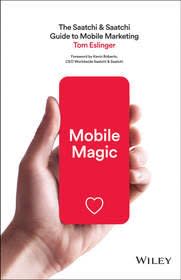Textline boasts features that help ensure compliance with HIPAA and other legal regulations. (Source: Textline)
When using a text message marketing service, be sure to follow text message marketing laws and best practices. Pay attention to your provider’s own guidelines and recommended use policies in addition to the applicable regulations like those below.
Telephone Consumer Protection Act (TCPA)
The TCPA is overseen by the U.S. Federal Communications Commission. It outlines the laws you must abide by when collecting contacts and sending text messages. Not everything in the TCPA applies to text message marketing, but you should review the regulations specific to texting to ensure you comply.
One TCPA requirement is that you get permission from each contact before you send text messages to them. Another is that you only send texts between the hours of 8 a.m. and 9 p.m. (in the recipient’s time zone, not yours).
Cellular Telecommunications and Internet Association (CTIA) and Mobile Marketing Association (MMA)
The CTIA and MMA guide companies on the appropriate use of text message marketing to consumers. Although these guidelines are not laws, they are considered best practices. Here are some of them:
- Don’t use the term “free” unless what you’re offering is truly free to the end user.
- Advertising materials should include the program name, a description of the products and quantity (if applicable), a link to the terms and conditions, instructions on how the individual can stop receiving messages and a note that message and data rates may apply. Alternatively, you can provide all of this information when the customer texts HELP.
- Get the consumer’s opt-in approval before sending messages to them.
- Provide an easy mechanism to unsubscribe.
- Maintain opt-in and opt-out records for at least six months.
- Avoid advocating the use of tobacco, alcohol or other drugs in your message.
- You may need to require age verification for some marketing campaigns.
Campaign Registry
In recent years, consumers have been plagued by spam text messages. Often, a rogue operator purchases a local number and sends unsolicited and unwanted marketing messages to consumers before disappearing. This can lead to messaging platforms like those we’ve reviewed being shut down temporarily to investigate what happened.
To address this, the Campaign Registry was established by the major cellular network operators, including Verizon, T-Mobile and AT&T. Their goal was to stop spam text messages so that, as a channel of communication, it would retain and strengthen the trust of consumers.
Now, before any company can send a text message marketing campaign via a 10-digit-long code (10DLC), they must be on the Campaign Registry. To apply, you must first provide information about your company, including its brand name, type of business, address, website address, company size and contact details. You also need to share why you want to use texting, the type of content you want to send out (including sample messages) and how you’ll manage subscribers opting in and out.
Once registered, you’ll get higher deliverability on your text campaigns and be able to send more messages. There is a fee of $15 a month to stay on the service and all phone numbers from which campaigns are sent out must be on the Registry.
Your text message marketing platform provider will normally assist you in this process.
You can be fined $500 to $1,500 for every illegal text message you send. All the services we investigated have active programs to help you stay on the right side of the regulations.

![Best Mobile App Marketing Companies and Agencies [June 2024]](https://virtual-coach.com/wp-content/uploads/2024/05/1717190516_mad_reports_660d5d6df347f1712151917.webp)

